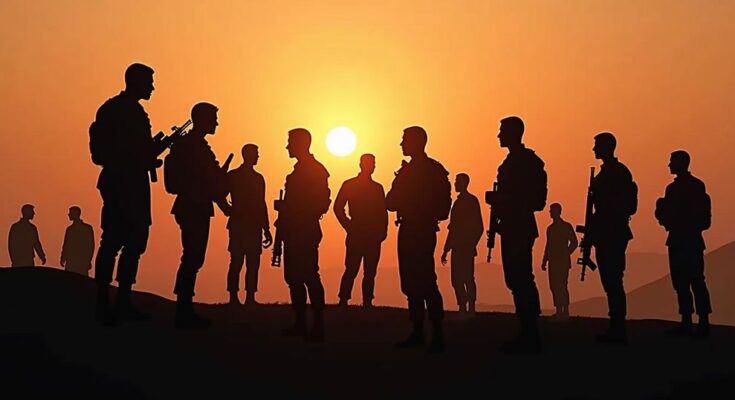As Tunisia anticipates a contentious presidential election, concerns grow over the military’s increasing political influence under President Kais Saied. Historically marginalized, the army’s recent ascent in governance could alter the nation’s democratic fabric, as past collaborations with civilian leadership come into question. Observers highlight the military’s critical decision-making role in upholding or undermining democratic principles in the face of Saied’s authoritarian inclinations.
The evolving political landscape in Tunisia has brought the military’s increasing involvement in governance into sharper focus, especially as the nation approaches the presidential election. Historically marginalized under Presidents Habib Bourguiba and Zine el-Abidine Ben Ali, the Tunisian army emerged as a prominent political player following its pivotal role during the 2011 revolution, celebrated as the “guarantor of democracy.” Current President Kais Saied has notably augmented the military’s influence since taking office in 2019, notably involving army officers in governmental roles—a historic first in Tunisia. With an upcoming presidential election characterized by allegations of unfair practices, observers express apprehension regarding the army’s potential impact on political proceedings. Unlike its counterparts in Algeria, Libya, Egypt, and Syria, the Tunisian military has traditionally refrained from economic or political manipulation. Following the 1956 independence, Bourguiba aimed to restrict military involvement in politics, a philosophy shaped by his professional background as a lawyer and an aversion to military coups. Over the years, despite its marginalization, the army’s public perception improved significantly post-revolution, primarily due to its role in thwarting oppressive government actions, thus embodying the population’s hopes for democratic governance. This prominence was further solidified during escalating terrorist threats from 2011 to 2016, fostering an expanded military budget and collaborations with international partners, particularly the United States, which has regarded the Tunisian army as a critical ally. In recent years, President Saied has strategically cultivated the military’s loyalty as a bulwark for his authority, especially following his controversial power consolidation in July 2021. Saied’s administration has sought to entwine military personnel into key government positions, signaling a transformative shift in Tunisia’s political fabric. However, this alteration has not been without complications, as evident tensions arise from disagreements between civilian governance and military commands on essential issues like resource management and political repression. As the 6 October presidential election looms, the role of the army has become pivotal, with its statutes compelling them to protect the republican form of governance. Former human rights minister Kamel Jendoubi highlighted the army’s critical decision—whether to champion democratic engagement or align with authoritarianism amid increased political repression. The military’s stance during this electoral process will be crucial in shaping Tunisia’s future political landscape, as the populace grapples between aspirations for democratic governance and fears of regressive authoritarianism.
The article examines the increasing influence of the Tunisian army in politics, particularly under President Kais Saied, marking a significant transformation since the 2011 revolution. Historically, the military in Tunisia has been confined to non-political roles, influenced primarily by former President Bourguiba’s desire to keep the army at bay. However, following the revolution, the army’s role has evolved, especially in counter-terrorism efforts and as a protector of democracy. The piece addresses the military’s newfound prominence as Tunisia approaches a presidential election under controversial conditions.
In summary, the growing influence of the Tunisian army in political affairs under President Kais Saied raises significant concerns regarding the implications for democracy in Tunisia. As the nation prepares for an election marked by allegations of unfairness, the military’s past role as a stabilizing force is now in question as it faces the delicate balance between supporting democratic processes and accommodating authoritarian tendencies. The upcoming election will be a decisive litmus test for the military’s commitment to upholding democratic values in a rapidly changing political environment.
Original Source: www.middleeasteye.net




